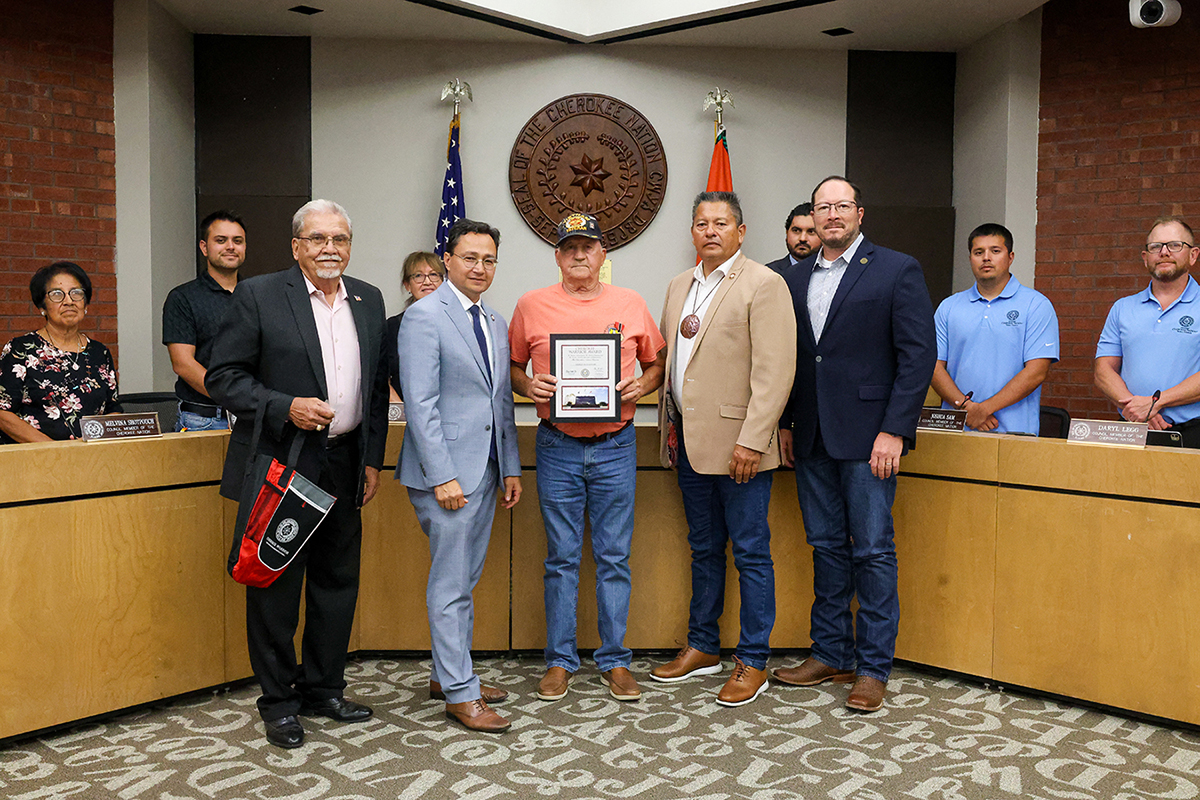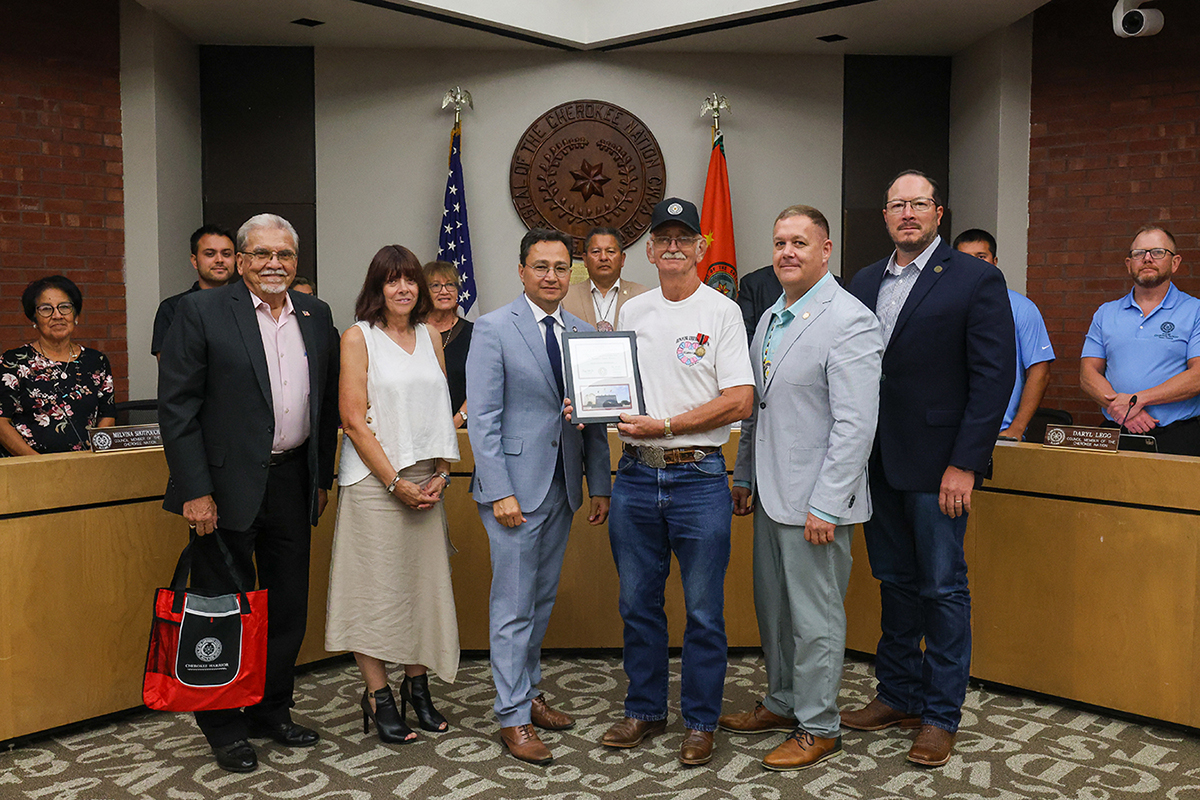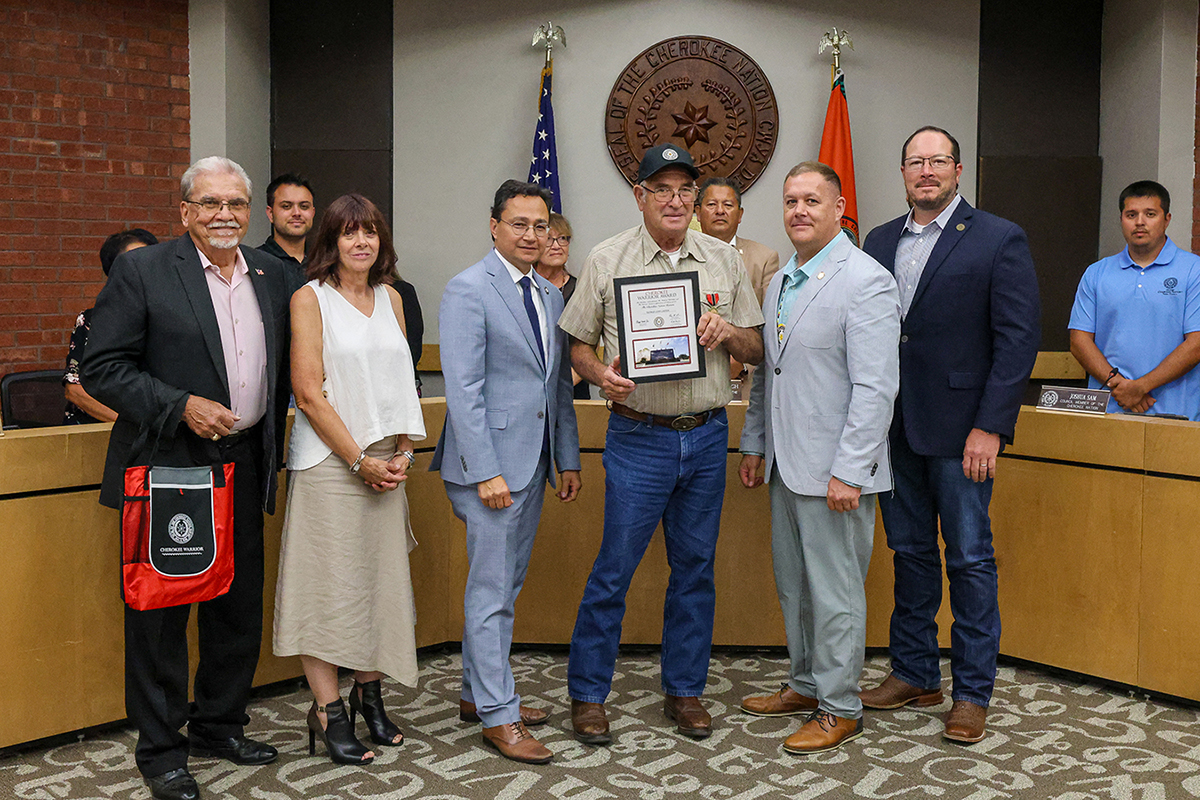TAHLEQUAH, Okla. — The Cherokee Nation honored three veterans with the Medal of Patriotism during the September meeting of the Council of the Cherokee Nation.
Thomas Carter of Ada, Charles Alvin January of Colcord, and David Tevebaugh of Miami were recognized by Cherokee Nation Principal Chief Chuck Hoskin Jr., Deputy Chief Bryan Warner and Secretary of Veterans Affairs S. Joe Crittenden, acknowledging their service and sacrifices to their country.
Carter joined the U.S. Army in October 1969, and was sent to Fort Polk for basic training in November 1969. After boot camp, Carter received his first assignment in Lawton with the motor pool of an artillery unit. While at Lawton, he received rank of Specialist (E4) and was sent to Oakland Air Force Base in California for 30 days. From there he was deployed to Vietnam in October of 1970 and assigned to the 36th Engineers Battalion in Vinh Long province, where his unit was primarily in charge of clearing and providing roads for troops and equipment moving. The unit was stalled when he arrived due to a delay in receiving parts for machines, so he fabricated a new fuel pump from a disabled vehicle and fixed the equipment himself. Due to his work, he received a promotion to Sergeant. Carter was honorably discharged on December 8, 1975.
Carter was awarded the Vietnam Campaign Medal, Vietnam Service Medal and the National Defense Service Medal.
“I am more than honored to be here,” said Carter. “I am so grateful, and I really don’t have the words to express that gratitude. Thank you.”

January joined the U.S. Army in March 1968, and completed his basic training at Fort Polk. He was then deployed to Vietnam on Sept. 15, 1968. While in Vietnam, January was with the “A” company, where for six months he served as a radio operator and helped with various field repairs. He also spent five and half months as a Jeep driver and bodyguard for the commanding officer at the forward operating base. January returned to the states on Aug. 29, 1969, and went to Fort Sam Houston in Texas and for six months helped to train medics. He was honorably discharged on March 25, 1970.
January was awarded the National Defense Service Medal, Vietnam Service Medal, Vietnam Campaign Medal, Army Commendation Medal with 1st Oak Leaf Cluster and the Good Conduct Medal.
“I appreciate receiving this award,” said January. “I was glad to serve my country.”

Tevebaugh joined the U.S. Army in March of 1969, and attended his basic training and advance individual training at Fort Polk. He then served with the 101st Air Borne Division in Vietnam and was promoted to Specialist (E4), before being sent to Scofield Base in Hawaii. With only 18 months of service, he was promoted to sergeant. Tevebaugh was honorably discharged on Dec. 26, 1976, with rank of staff sergeant.
Tevebaugh was awarded the National Defense Service Medal, Good Conduct Medal, Vietnam Service Medal and the Army Commendation Medal.
Each month, the Cherokee Nation recognizes Cherokee service men and women for their sacrifices as a way to demonstrate the high regards in which all veterans are held by the tribe. Native Americans, including Cherokees, are thought to have more citizens serve per capita than any other ethnic group, according to the U.S. Department of Defense.

